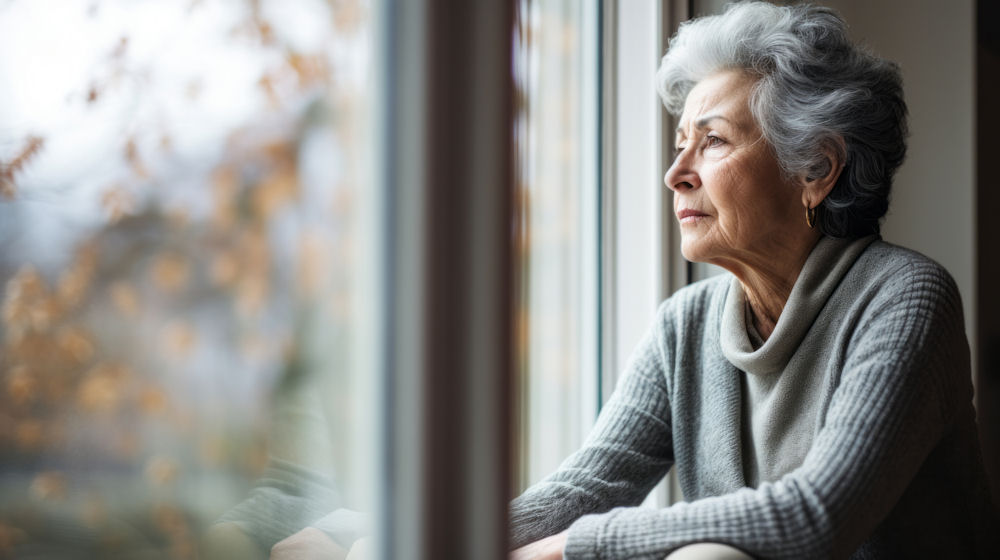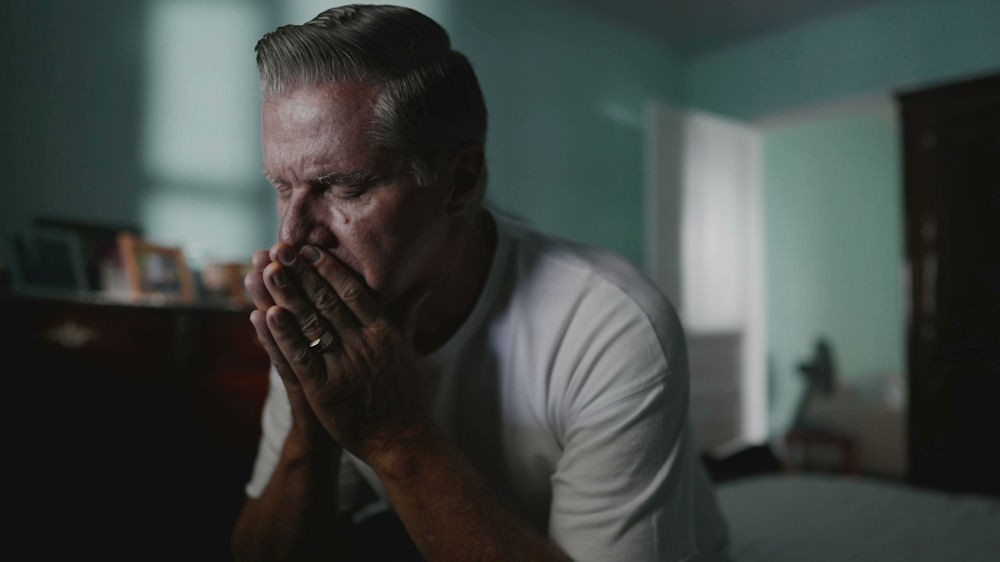If you live with a mental illness, you know the worth of investing in your well-being. A mental illness requires attention and maintenance to keep it in a manageable state. When aging concerns also come into play, it’s important to invest in self-care and watch out for factors that may aggravate mental health issues.
At Laguna Shores Recovery in Dana Point, California, we provide our clients with high-quality levels of care to help them better manage their mental illness.
The Impact of Age and Gender on Mental Health
Mental illness does not necessarily get worse with age. However, there are unique issues that come with advanced age that may intensify stress, which can aggravate mental illnesses that are already present.
Growing older leads to many transitions, many of which come with stress. Many older people lose beloved friends, family members, and even spouses as they enter later stages of life. Grief and loss take a toll on mental health, and many people experience steady losses as time goes on.
Caretaking also takes a heavy toll on older people, for themselves and others. Spouses and family members will experience more adverse medical events as time goes on. Maintaining personal health may also become more difficult, as mobility and access decrease.
One under-discussed aspect of mental health in adults is financial strain. Medical bills and transitioning to elder care (or hospice) can take a toll on finances, especially if they’re unexpected. Many people find that they haven’t saved enough money for retirement, and thus have to return to work to make ends meet.
Apart from mental illness, chronic illness can also create incredible stress as one enters the late stage of life. Symptoms may become more severe or difficult to manage. Hospitalization may become more frequent, and small injuries will require more time to heal. All of these can cause intense stress, and thus aggravate mental illness in old age
There are significant differences between the genders regarding mental health in old age. There are likely interesting points about mental health in LGBTQA+ seniors as well, but there is not yet a large body of research on their needs and conditions.
Men face many unique challenges to their mental health, with one notable example being social withdrawal and isolation. As men age, it may become harder for them to maintain relationships. This is particularly true after the death of a spouse. Men are more likely to fall into risky behaviors, and so the risk of substance use disorder lingers into old age. Andropause and lower testosterone also affect older men’s mental health. Even if they suffer no adverse physical symptoms, they may suffer changes to their self-image and additional stress. Retirement can bring additional stress if an individual invests a lot of their identity into their job.
As they age, many women experience mental health issues that are unique to the aging process for women. They will undergo menopause and experience more severe hormone fluctuation that goes along with aging. They may experience a resurgence of postpartum depression upon becoming grandmothers or may become reflective and regretful of their mothering techniques. Women are also more likely than men to develop osteoarthritis, brittle bones, and chronic pain conditions as they age. All of these can have a significant impact on one’s mental health.
There are many discrepancies in how each gender deals with mental health, as well as how each accesses mental health services. Much like LGBTQA+ seniors, women haven’t frequently been the subject of clinical trials regarding mental health. But women are also more likely than men to seek out mental services or peer support during a mental health crisis.
It’s important to note that mental health is highly individual, and many people do not fit the format or expectations of their identity groups. A huge confounding factor is addiction and whether or not someone has a dual diagnosis. Substance use disorder and mental illness interact in various ways, and can often exacerbate symptoms.
Why is There a Lack of Mental Health Support for Older Adults?

There can be major stigma around seeking help for mental health issues, regardless of age. But older people are frequently expected to be grumpy, lonely, or cantankerous as a part of the aging process. In reality, this isn’t a mandatory part of aging and it’s important to speak up for one’s mental health needs regardless of age.
Older people may also have more difficulty accessing mental health services, which can provide unreliable data about demand for these services. Older people may live in rural places where medical services aren’t easily accessible. This makes traveling to a larger town for appointments or exams (a task that may already be overwhelming) less appealing. If mobility is an issue, an older person may have trouble securing rides to services. They may not be able to drive or navigate services during certain times of the day due to vision limitations.
Mental Health FAQs
Mental health can be a tricky topic, especially for older people. Here are some common answers to questions about mental health for elderly people:
Mental illness can peak at any age. However, some conditions, such as dementia and late-onset depression, may become more prevalent in older age. However, the experience of mental illness varies widely depending on the individual and the specific type of mental health condition.
Anxiety can occur at any age and may fluctuate throughout life in response to various stressors and life events. Some individuals may experience decreased anxiety as they age, while others may continue to struggle with anxiety disorders into older adulthood. The timing and intensity of anxiety can vary widely among individuals.
Mental illness can affect individuals of all ages, but young adults aged 18-25 are often the most affected by mental health disorders. However, mental health concerns are prevalent in older adults (depending on the individual). This can be due to factors like chronic illness, cognitive decline, and social isolation.
Dealing with stress can become more challenging with age, due to factors like declining physical health, cognitive changes, and life transitions like retirement or loss of loved ones. Older adults may also have fewer coping resources or be less resilient to stressors compared to younger individuals. However, this is highly dependent on the individual and their coping mechanisms.
How to Improve Mental Health As You Age
Older people do have particular health concerns that deserve attention. But many of the top recommendations are true regardless of the stage of life.

As part of routine healthcare visits, individuals should undergo regular mental health screenings, especially if there is a family history of mental health issues or they are experiencing symptoms of depression, anxiety, or cognitive decline. Early detection and intervention can lead to better outcomes and improved quality of life.
Regular physical activity, such as walking, swimming, or tai chi, can help improve a person’s mood, reduce anxiety and depression, and enhance cognitive function. For people suffering from addiction or mental illness, exercise as medicine is a complementary philosophy to many regimens. Many fitness centers offer classes specially geared toward seniors that take limited mobility into account.
A balanced diet rich in fruits, vegetables, whole grains, lean proteins, and healthy fats can support brain health and overall well-being. Avoid excessive consumption of processed foods, sugar, and alcohol, which can negatively impact mood and cognitive function.
Maintaining social connections and engaging in meaningful activities can help combat feelings of loneliness, isolation, and depression. Joining clubs, volunteering, participating in community events, or connecting with family and friends can provide emotional support and promote mental well-being.
Engaging in mentally stimulating activities, such as reading, puzzles, games, or learning new skills, can help maintain cognitive function and prevent age-related cognitive decline.
Limiting alcohol consumption and avoiding the misuse of prescription medications or illicit drugs is essential for maintaining mental health. Excess alcohol can lead to health concerns that may be particularly painful to older people, such as stomach ulcers.
Adequate sleep is essential for mental health and overall functioning. Aim for 7-9 hours of quality sleep per night and practice good sleep hygiene by maintaining a consistent sleep schedule, creating a relaxing bedtime routine, and creating a comfortable sleep environment.
If a person is experiencing persistent feelings of sadness, anxiety, or other mental health symptoms (including heightened symptoms of existing problems), it’s important to seek help from a mental health professional. Psychotherapy, counseling, or medication can be effective treatments for various mental health conditions. Inpatient mental health and dual diagnosis treatment can benefit people of any age, and it’s always worth it to invest in one’s health.
Find Healing at Laguna Shores Recovery
No matter the age of a person, it’s important to take care of one’s mental health. Addiction can complicate these efforts. That’s why at Laguna Shores Recovery, we work to help heal the entire person from a holistic perspective. Evidence-based therapies merge with education and support from our team. Contact us today to start investing in your mental health.

 Matthew Beck B.A, M.A, LMFT
Matthew Beck B.A, M.A, LMFT 


